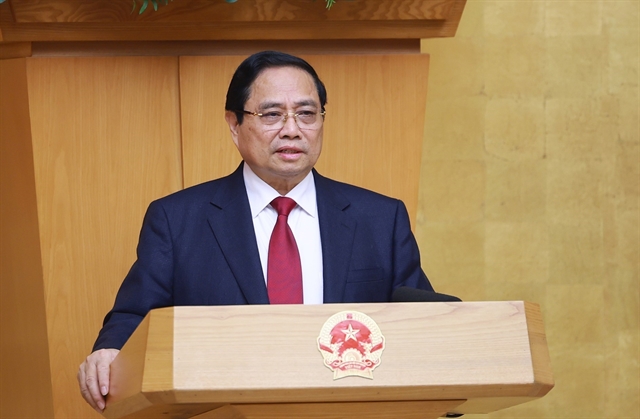 Politics & Law
Politics & Law


|
| Deputy Prime Minister Vương Đình Huệ addresses a conference in Hà Nội on the implementation of a resolution on renewing, developing and improving the efficiency of the collective economy. — Photo baochinhphu.vn |
HÀ NỘI — Deputy Prime Minister Vương Đình Huệ said although the collective economy had achieved substantial development, due attention hadn’t been paid to the sector.
He made the statement during a conference in Hà Nội yesterday to review a resolution designed to renew, develop and improve the efficiency of the collective economy.
The resolution was adopted at the fifth plenum of the 9th Party Central Committee in 2004.
Huệ said despite challenges, the collective economy had escaped from a prolonged slump. About 57 per cent of co-operatives in the agricultural sector are operating effectively, creating jobs and enhancing incomes for their members and labourers, he said.
However, the Deputy PM said shortcomings in the operation of co-operatives and State management of the collective economy remained weak.
“Some provinces, including Hà Giang and Sơn La, still face many difficulties despite having collective economies and co-operatives,” he said.
Huệ pointed out that the effectiveness of a collective economy should not be assessed by the number of co-operatives and their assets and revenue, but should also take into account their contributions to the country’s GDP.
Lê Sơn Hải, deputy head of National Assembly’s Committee for Ethnic Affairs, agreed, saying although the Government had decided on the 15-year implementation of the resolution on the collective economy, many provinces had not reviewed their performance or carefully analysed the situation and made recommendations for the future.
A representative from the Party Central Committee’s Economic Commission said the difference between a co-operative economy and enterprises was that co-operatives helped connect and strengthen the household economy.
In order to evaluate the performance of co-operatives, the Commission asked ministries and sectors to provide specific data on the contributions of the collective economy to market chains and dominance, as well as community development indicators. — VNS